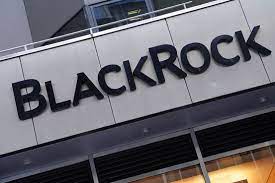First Deputy Governor of the Bank of France: The stablecoin provides a plan to improve the payment system, but there are risks that need to be addressed
Denis Beau, the first deputy governor of the Bank of France, recently spoke at the "European Ambitious" stablecoin conference. Paris Europlace and ConsenSys organized the event in January of this year. Beau talked about the good and bad of stablecoins. He outlined three tasks for regulators to develop a stablecoin adoption policy.

Source: Pixabay
Beau says:
- If there are "cryptographic Oscars", these ten must take the little golden men
- Why does ETH not maintain a currency premium in the long run?
- Can you use Lightning Network without knowing Bitcoin? This app makes cryptocurrency payments possible
"While it is clear that they provide opportunities to improve our payment system, they can also pose considerable risks that must be addressed. In this case, the primary responsibility of private sector entities is that design will not give us Arrangements where payment systems pose undue risks. "
Recently, it was pointed out at the World Economic Forum 2020 that other policymakers have the same idea.
In his speech, he believed that regulators in French and European economies should respond by retaining the positive potential impact of stablecoin innovation. Second, they need to coordinate the monitoring framework at the international level. Third, policy makers should make efforts, including field trials, to address current weaknesses in the payment and settlement area.
He acknowledged that mortgage tokens can provide two benefits to the modern financial system: faster and cheaper retail consumer payment services, and wholesale payment clearing and settlement systems.
Without careful consideration, the adoption of stablecoins may bring economic and stability risks. He pointed out: "As an intermediary of exchanges, stablecoins are far less effective than settlement assets with fiat currency status, because (i) their price stability depends on the value of a basket of assets, so they are not completely stable. ; And (ii) in the event of fraud, they do not provide a money back guarantee. "
In his concluding remarks, he said:
"We should be open-minded and have a deep understanding of innovations, including the financial industry, including thorough experiments."
The blockchain theme has influenced central banks and policy makers. Obviously, there will be more discussions by regulators in 2020. The future of adopting stablecoins is unknown, but improvements in payment technology should be the focus of innovation.
We will continue to update Blocking; if you have any questions or suggestions, please contact us!
Was this article helpful?
93 out of 132 found this helpful
Related articles
- Japanese social media giant Line approved, starts trading its own digital currency domestically in April
- Expert online round table: AI, big data, blockchain and other technologies can help fight new pneumonia
- Who are the top ten participants in the crypto space in 2019?
- Reinventing trust, strengthening collaboration, and blockchain helping charity
- Twitter Picks | Miners objected, Zcash similarly rejected the proposal, Jiang Zhuoer's second version of the BCH miner's tax proposal is in doubt
- Ethereum co-founder Vitalik Buterin: BCH is not Bitcoin
- Why is 2020 the year of opportunity for blockchain development?






